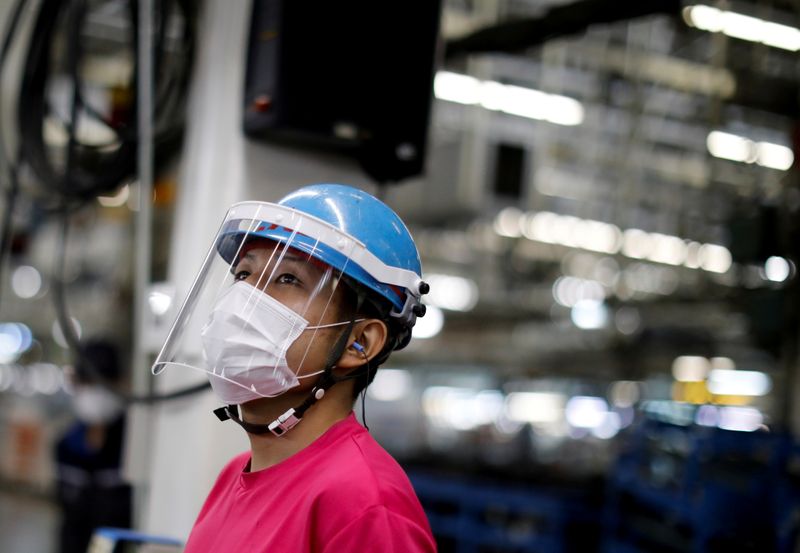TOKYO (Reuters) – Japanese companies plan to make the deepest cut in capital expenditure in more than a decade this year as the coronavirus pandemic hits profits, a government survey showed, underscoring the broadening economic impact of the health crisis.
The dismal reading highlights the challenge facing Japan’s next prime minister, to be chosen in a ruling party leadership race next week, as policymakers try to balance the need to contain the virus and support an economy grappling with its worst postwar recession.
“Companies have little choice but to slash spending when their profit outlook is so gloomy,” said Takeshi Minami, chief economist at Norinchukin Research Institute.
“Japan could see more companies cut spending and jobs toward the year-end, which means it will take quite a long time for the economy to return to pre-pandemic levels,” he said.
Companies plan to cut capital expenditure by 6.8% in the fiscal year ending in March 2021, the quarterly survey showed on Friday, more than a 4.4% drop projected three months ago.
It was the biggest proposed cut since January-March 2010, when Japanese exports were crunched by the global financial crisis.
Manufacturers expect to reduce capital expenditure by 4.5% compared with a year earlier, while non-manufacturers plan a 8.1% reduction, the survey showed, suggesting that slumping profits were denting spending appetite across industries.
Companies expect sales to fall 6.8% in the current fiscal year, more than a 5.2% drop projected three months ago and the biggest decline since 2010.
They expect recurring profits to plunge 23.2%, the fastest pace of decline since 2009, with automakers and service-sector firms among those hit hardest by the crisis.
Japan suffered its worst postwar economic contraction in the second quarter as COVID-19 hit businesses. Analysts expect only a modest rebound in the current quarter.
(Reporting by Leika Kihara; additional reporting by Tetsushi Kajimoto; Editing by Jacqueline Wong & Shri Navaratnam)






















